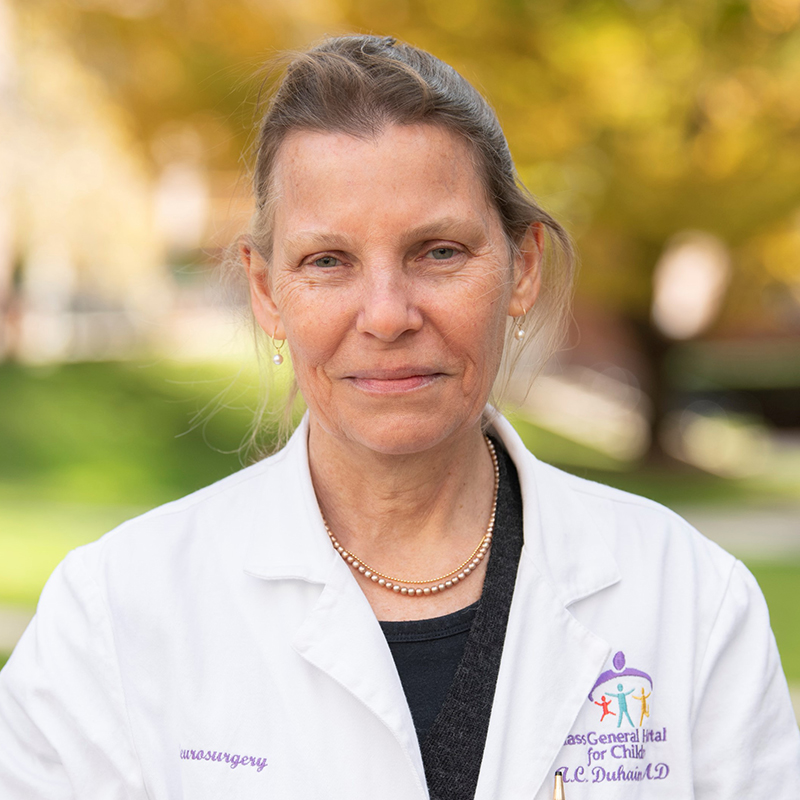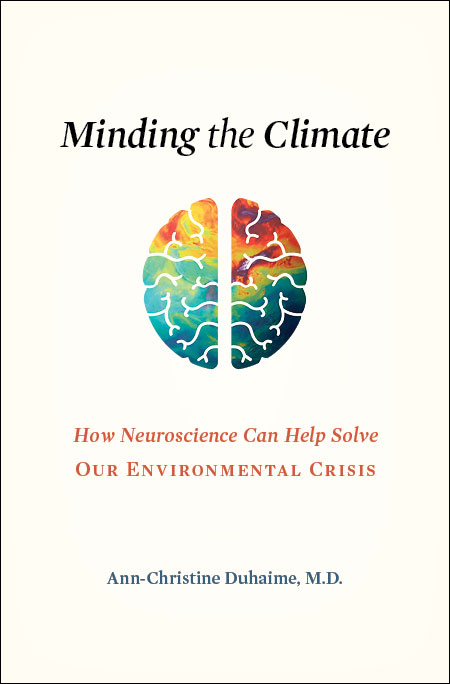Ann-Christine Duhaime, MD
Climate Change, Land, and Your Brain: A Hundred-Year Global Story
Why has climate change—a true existential threat to our planet—been so difficult for us to address? And, if we love nature so much, why haven’t we been able to summon the will to protect it? This talk will look at this problem from the point of view of how the brain works to make decisions based on the evolutionary history that determined the design of our neural equipment. While climate change presents an enormous challenge, it is not impossible, especially if we call on what we know about the brain’s reward system to help us change our own behaviors and those we influence to tackle this large-scale, intergenerational crisis, and to provide hope for a better future.

Ann-Christine Duhaime, MD, is a senior pediatric neurosurgeon at the Massachusetts General Hospital and the Nicholas T. Zervas Distinguished Professor of Neurosurgery at Harvard Medical School. Her neuroscience research investigates mechanisms, pathophysiology, imaging, and treatment of injury in the immature brain.
Dr. Duhaime also has a longstanding interest in the relationship between brain and behavior, and in environmental issues. Her book, Minding the Climate, was published in 2022 (Harvard University Press). She is a Faculty Associate of the Harvard University Center for the Environment and was a fellow at the Radcliffe Institute in 2016. She now serves as Associate Director of the Massachusetts General Hospital Center for the Environment and Health and as Associate Editor-in-Chief of the Journal of Climate Change and Health.
We sat down with Dr. Duhaime to learn more about her work and keynote address.
You’re a pediatric neurosurgeon who specializes in trauma. What inspired you to begin working on the climate crisis?
Dr. Ann-Christine Duhaime: I was always interested in the brain and how it works, and I have always been drawn to and interested in nature from early in life. Part of why I went into neurosurgery is that the brain is a really cool creation of nature—I don’t see the two as separate. I like people, so it was fun and rewarding to take care of people, especially kids.
But there came a time, as climate change became more and more of an obvious and pressing threat, that I started to feel a contradiction between taking care of one child at a time and this catastrophic change in the world that is going to threaten every child. So I made a conscious decision to use what I had come to know about the brain to focus that perspective on the climate crisis.

In your 2022 book, Minding the Climate, you explore how our brains evolved to prioritize short-term rewards over long-term consequences like the climate crisis, but that things like social rewards can be powerful change agents. What is something you were surprised to learn while writing this book?
One thing that was surprising was how little (research) there was connecting climate change to the brain. For people in my profession, every decision that humans make, every action we’ve taken can be explained through the lens of how the brain operates. Your brain is constantly changing; it’s designed that way. But the question is: can we choose to have a greater influence on our own decisions and the decisions of others in light of this crisis?
There are data that suggests there are strategies that have been used in other contexts that could be used in this context, and that while it will be a challenge, our brains are sufficiently flexible that they can change their decision-making priorities quite dramatically under the influence of things like facts and social influence.
The theme of the 2024 Gathering is Collaborating for Healthier Communities. What should people expect to learn from your talk?
Most people are heavily influenced by social context, the opinion of others, by reflecting what the norms are around them, by the approval of respected leaders in a community. What does that have to do with climate change and climate action?
The kinds of behaviors we have to change are simply much less fun, much less rewarding than the alternative, which is the status quo. And because there are things we have to do that are not rewarding, how do you get people to do them? The overall equation must be more rewarding than not, or people won’t do it.
I came to the conclusion looking at other difficult behavioral changes—addiction and the Ebola epidemic in West Africa in 2014, which required a very rapid cultural change—that the things that worked involved the substitution of one reward for another. The reward in the climate world that we can substitute and that we have some control over is social reward. We can choose to deliberately find ways to capitalize on the high reward value of social change and social approval by bonding with like-minded people.